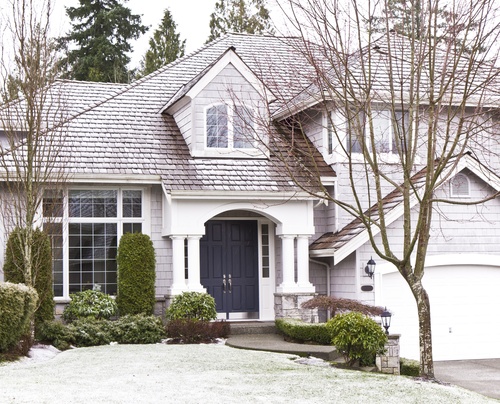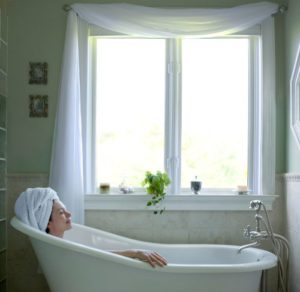Best Tech Tools for Homebuyers

One of the great advantages of being a homebuyer in 2019 is the number of tools you have at your disposal. Never before has a homebuyer had so many options for researching a neighborhood, browsing for homes, or even applying for mortgages. In fact, there are so many resources available that it can be a bit overwhelming. That’s why we’ve compiled a list of what we think are some of the best tech tools out there for homebuyers. Happy hunting!
Determining your budget
When you begin your home search, you need to know where to start. Which is why it’s important to know how much house you can afford. This allows you to zero in on properties that are within your budget from the very beginning. There are many great online calculators available that let you plug in your numbers to get an estimate of what your budget should be.
Browsing the market
It’s never been easier to search for homes for sale. According to the National Association of Realtors, half of all homebuyers find their home online. There are many great online resources for browsing homes for sale, including Trulia, Zillow, and Realtor.com. You can also browse the websites of local real estate agents to find properties that are for sale in your area.
Researching the neighborhood
If you’re moving to a new area, then you want to get a sense of what it’s like before you decide on a home. With the technology that is now available, you can visit the neighborhood without leaving your couch. A great way to get a sense of the layout of the land is through Google Maps. You can virtually walk the entire neighborhood to see what the other homes are like and what businesses and other amenities are in the area. Search Yelp to find out where locals like to shop, eat, and play. There are even tools to find out the crime rate, how walkable the area is, and what the schools are like. Check out this great article from Realtor.com to discover other great tools for researching the neighborhood.
Keeping track of details
If you’re visiting lots of homes, then it can be a challenge to keep all the details straight. That’s why it’s such a good idea to use the camera on your smartphone when you’re touring a house. Take pictures of all the rooms, including the views outside the windows. Don’t forget to also take pictures of the exterior including the roof and landscaping. You’ll find that you use these images over and over again as you weigh the pros and cons of each of the homes you tour.
Sharing documents
Finally, you’re going to be dealing with quite a bit of paperwork when you’re buying a home. An easy way to store and share this information is with cloud storage like Dropbox or Google Drive. You can save all your photos to these sites as well as loan documents and other paperwork related to the purchase of the house. It makes it simple to keep everything organized and to share it with others on your team with ease. Make sure that you’re protecting your data. Read More here.
Compliments of Virtual Results




 It’s that time of the year when we’re all thinking about how clean our homes are. The Marie Kondo craze has many of us clearing out our closets and cabinets in order to make our homes free of clutter. But have you stopped to consider how clean the air in your home is as well? We spend approximately 90 percent of our lives indoors, and
It’s that time of the year when we’re all thinking about how clean our homes are. The Marie Kondo craze has many of us clearing out our closets and cabinets in order to make our homes free of clutter. But have you stopped to consider how clean the air in your home is as well? We spend approximately 90 percent of our lives indoors, and 

 You found a home you love. You made an offer that you thought couldn’t be beat. But it was – by an all-cash offer from another buyer. Although buyers who pay for homes with cash are attractive in many markets, it doesn’t mean you will always lose out, you can also pay through
You found a home you love. You made an offer that you thought couldn’t be beat. But it was – by an all-cash offer from another buyer. Although buyers who pay for homes with cash are attractive in many markets, it doesn’t mean you will always lose out, you can also pay through 

 Happy New Year! It’s 2019 – are you ready for a home décor re-boot? It’s that time of year when many homeowners want to declutter, get organized, and try out new looks in their living spaces. Are you one of them? Then read on to find out what experts are predicting will be the hottest home design trends of 2019.
Happy New Year! It’s 2019 – are you ready for a home décor re-boot? It’s that time of year when many homeowners want to declutter, get organized, and try out new looks in their living spaces. Are you one of them? Then read on to find out what experts are predicting will be the hottest home design trends of 2019. Are you exhausted from trying to live your best, most perfect life? Then maybe it’s time to embrace the Japanese concept of wabi-sabi. So what exactly is wabi-sabi, and how can you apply it to your life at home? Here are some practical tips.
Are you exhausted from trying to live your best, most perfect life? Then maybe it’s time to embrace the Japanese concept of wabi-sabi. So what exactly is wabi-sabi, and how can you apply it to your life at home? Here are some practical tips. The New Year is here! For many homeowners, that means cleaning and organizing to start 2019 off on a good foot. Although you may have the best of intentions, you could be making some common cleaning mistakes. By trying to take shortcuts, you may actually be creating more work for yourself. Let’s take a look at what those bad cleaning habits may be and offer some solutions for how to tackle them.
The New Year is here! For many homeowners, that means cleaning and organizing to start 2019 off on a good foot. Although you may have the best of intentions, you could be making some common cleaning mistakes. By trying to take shortcuts, you may actually be creating more work for yourself. Let’s take a look at what those bad cleaning habits may be and offer some solutions for how to tackle them.

 Catch Our Feed
Catch Our Feed Subscribe via Email
Subscribe via Email Follow Our Tweets
Follow Our Tweets Friend Us On Facebook
Friend Us On Facebook Watch Us On Youtube
Watch Us On Youtube